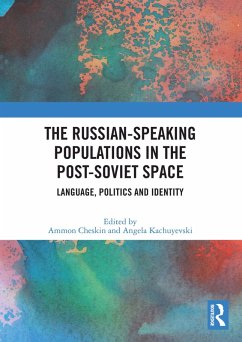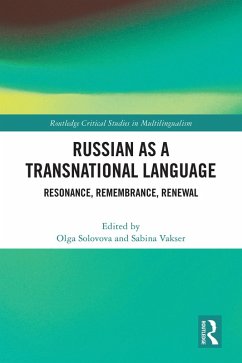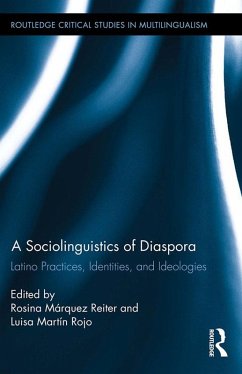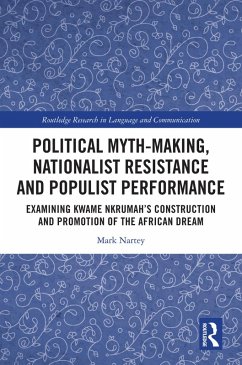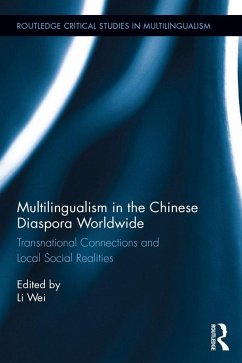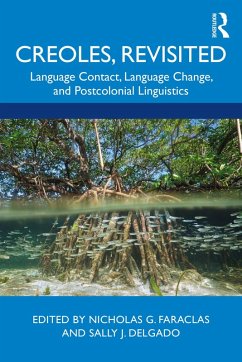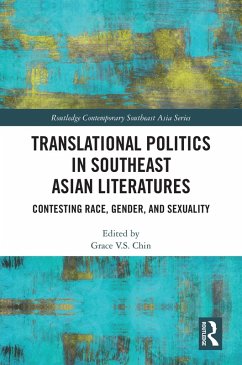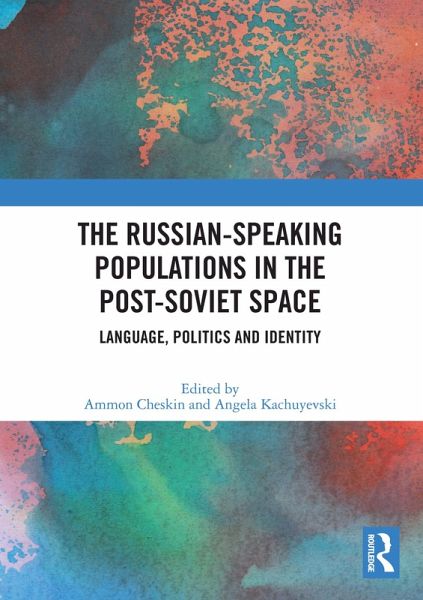
The Russian-speaking Populations in the Post-Soviet Space (eBook, PDF)
Language, Politics and Identity
Redaktion: Cheskin, Ammon; Kachuyevski, Angela
Versandkostenfrei!
Sofort per Download lieferbar
44,95 €
inkl. MwSt.
Weitere Ausgaben:

PAYBACK Punkte
22 °P sammeln!
In the wake of Russia's annexation of Crimea, this volume examines the relationship Russia has with its so-called 'compatriots abroad'. Based on research from Belarus, Estonia, Kazakhstan, Latvia and Ukraine, the authors examine complex relationships between these individuals, their home states, and the Russian Federation.Russia stands out globally as a leading sponsor of kin-state nationalism, vociferously claiming to defend the interests of its so-called diaspora, especially the tens of millions of ethnic Russians and Russian speakers who reside in the countries that were once part of the So...
In the wake of Russia's annexation of Crimea, this volume examines the relationship Russia has with its so-called 'compatriots abroad'. Based on research from Belarus, Estonia, Kazakhstan, Latvia and Ukraine, the authors examine complex relationships between these individuals, their home states, and the Russian Federation.
Russia stands out globally as a leading sponsor of kin-state nationalism, vociferously claiming to defend the interests of its so-called diaspora, especially the tens of millions of ethnic Russians and Russian speakers who reside in the countries that were once part of the Soviet Union. However, this volume shifts focus away from the assertive diaspora politics of the Russian state, towards the actual groups of Russian speakers in the post-Soviet space themselves. In a series of empirically grounded studies, the authors examine complex relationships between 'Russians', their home-states and the Russian Federation. Using evidence from Belarus, Estonia, Kazakhstan, Latvia, and Ukraine, the findings demonstrate multifaceted levels of belonging and estrangement with spaces associated with Russia and the new, independent states in which Russian speakers live. By focusing on language, media, politics, identity and quotidian interactions, this collection provides a wealth of material to help understand contemporary kin-state policies and their impact on group identities and behaviour.
The chapters in this book were originally published as a special issue of Europe-Asia Studies.
Russia stands out globally as a leading sponsor of kin-state nationalism, vociferously claiming to defend the interests of its so-called diaspora, especially the tens of millions of ethnic Russians and Russian speakers who reside in the countries that were once part of the Soviet Union. However, this volume shifts focus away from the assertive diaspora politics of the Russian state, towards the actual groups of Russian speakers in the post-Soviet space themselves. In a series of empirically grounded studies, the authors examine complex relationships between 'Russians', their home-states and the Russian Federation. Using evidence from Belarus, Estonia, Kazakhstan, Latvia, and Ukraine, the findings demonstrate multifaceted levels of belonging and estrangement with spaces associated with Russia and the new, independent states in which Russian speakers live. By focusing on language, media, politics, identity and quotidian interactions, this collection provides a wealth of material to help understand contemporary kin-state policies and their impact on group identities and behaviour.
The chapters in this book were originally published as a special issue of Europe-Asia Studies.
Dieser Download kann aus rechtlichen Gründen nur mit Rechnungsadresse in A, B, BG, CY, CZ, D, DK, EW, E, FIN, F, GR, HR, H, IRL, I, LT, L, LR, M, NL, PL, P, R, S, SLO, SK ausgeliefert werden.




